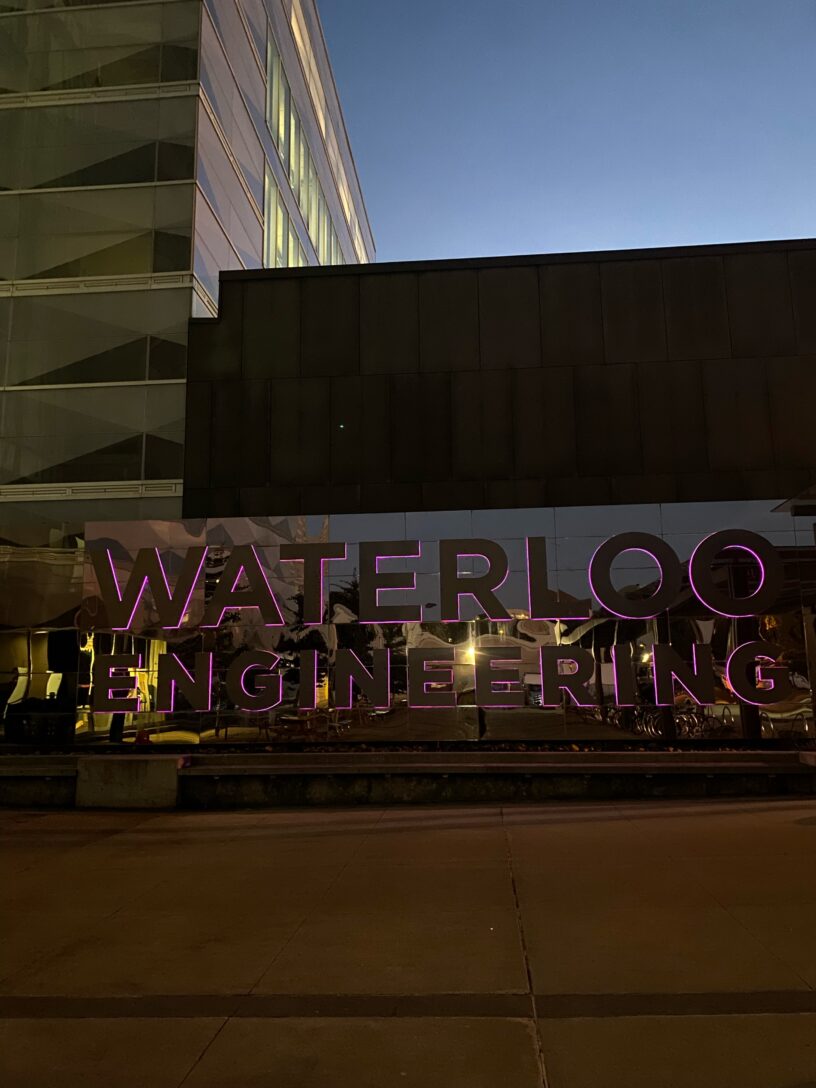62% of graduates from accredited Canadian post-secondary engineering programs chose not to pursue a Professional Engineering license (Engineers Canada, 2022). What’s to blame for this lack of licensure? Is the current licensing process still relevant in Canada given that less than 2 out of 5 graduates go on to obtain their license?
Engineering is considered a licensed profession in Canada, and the process varies slightly by each provincial or territorial regulatory body. In Ontario, the regulatory body that oversees licensing and the engineering profession is Professional Engineers Ontario (PEO). To become licensed, applicants apply to the PEO to receive their Professional Engineering license, otherwise referred to as a P.Eng..
On December 31, 2023, PEO released their official register regarding licensing. In 2023, 2773 new P.Eng licenses were approved for CEAB graduates (Canadian Engineering Accreditation Board), down 14% from 3238 in 2022 (Professional Engineers Ontario, 2023). The Faculty of Engineering at the University of Waterloo offers 15 undergraduate programs, 14 of which are CEAB accredited (University of Waterloo, 2024).
To apply for a license in Ontario, one must be a graduate of an accredited engineering program, pass the National Professional Practice Exam (which tests knowledge of the engineering profession, professional standards, ethical standards, patents, and trademarks), demonstrate good character, satisfy the experience requirement by completing 48 months of engineering work post-graduation under the supervision a Professional Engineer, and have a valid piece of identification.
In Canada, “only those licensed by a provincial or territorial engineering regulator may practice engineering and refer to themselves as an ‘engineer'”. By this definition, it is therefore illegal to misuse the title of engineer, and doing so may risk persecution from the regulators in Canada (Engineers Canada, 2022).
With the decline in new P.Eng. licenses being granted, can one conclude that it’s simply the long list of requirements to apply that is to blame?
A 2017 survey on final-year engineering graduates published by Engineering Canada highlights that, “the proportion of graduates who will definitely be applying for their P.Eng declined from 50% in 2016 to 44% in 2017 (Engineers Canada, 2017).” The primary reasons for not applying were the license not being needed/not perceived as beneficial (30%), application for a license in another province (26%), and unsure of working within the field (19%). Cost was cited as an additional reason for not pursuing a license, accounting for 3% of the responses (Engineers Canada, 2017).
To get a sense of the thoughts of current professionals and students on the topic, the Iron Warrior attended the Canadian Engineering Graduate Studies Fair on Monday, September 23, 2024 in Waterloo. Many graduating students, particularly from software-based programs such as Software, Computer, and Systems Design Engineering, were of the opinion that the license will not be necessary for their future jobs. Kapi, a Systems Design Engineering student from the class of 2025, mentioned that he “wants to be a UI/UX designer so [he] has not given it much thought as it’s not a requirement for the jobs [he] is interested in”. This sentiment was similarly echoed by many students at the fair looking to pursue careers in technology. On the contrary, Civil Engineering PhD candidate, Omar, highlighted that the majority of jobs that graduates from Civil Engineering pursue require a P.Eng. license. He explained that the documentation is needed particularly as you advance into more senior roles, since a licensed engineer is always needed to sign off for documentation approval. This thought is directly paraphrased on Engineer’s Canada’s website, “engineering graduates can practice engineering only if a licensed engineer assumes responsibility for the work. No one can sign off on engineering work without a license”.
Chris Nielsen, a Professor and the Associate Chair for Graduate Studies in the Department of Electrical and Computer Engineering at the University of Waterloo, believes that the PEO has the opportunity to lead the charge with respect to ethics and artificial intelligence. Nielsen calls on the PEO to increase their agility as the engineering landscape progresses in Canada. An increase in agility could translate to PEO and Engineers Canada updating their licensing timelines and requirements to entice a larger variety of engineering graduates to pursue a license.
Will there continue to be a trend of CEAB-accredited degree graduates entering the technology sector without an intention to pursue their P.Eng.? How will PEO and regulatory bodies in Canada adapt to the shift towards emerging technologies, such as ChatGPT?
References
2022 National Membership information. Engineers Canada. (n.d.-a). https://engineerscanada.ca/reports/national-membership-report/2022-national-membership-information#-from-engineering-student-to-professional-engineer
Engineers Canada. (2022, March 24). Who can use the title “engineer”? https://engineerscanada.ca/news-and-events/news/who-can-use-the-title-engineer
Engineers Canada. (n.d.). Final year engineering students 2017 survey. Final Year Engineering Students 2017 Survey – Final Results. https://engineerscanada.ca/savetopdf?nid=13632
Frequently asked questions. Engineers Canada. (n.d.-b). https://engineerscanada.ca/frequently-asked-questions
Professional Engineers Ontario. (2023, December 21). 2023 PEO Regulatory Stats.
Program Overview: Engineering. Engineering | University of Waterloo. (2024, September 9). https://uwaterloo.ca/engineering/future-students/program-overview





Leave a Reply